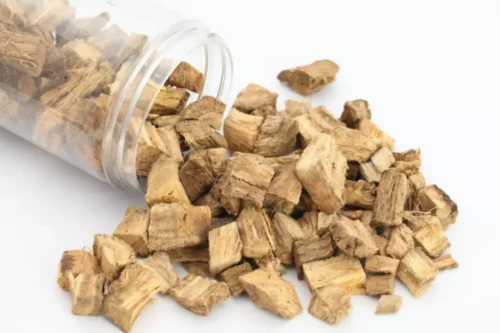
To minimize the risk of alcohol-induced breakouts and acne, it is advisable to consume alcohol in moderation. Additionally, maintaining a consistent skincare routine that includes cleansing, exfoliating, and moisturizing can help to keep your skin clean and healthy. In short, you may experience breakouts, dry skin, and accelerated aging because of inflammation, dehydration, and oxidative stress from drinking. When you put a stop to alcohol use, you’re reducing chronic inflammation, dehydration, and oxidative stress in your body—and this means significant changes for your skin as time goes on. If you like to drink sometimes, learning about the effects of alcohol on skin may feel disheartening. Luckily, there are steps you can take to protect your skin from the effects of a night of drinking.
Severe skin conditions linked to alcohol use
Changes to the skin may be more serious and last longer if a person regularly consumes alcohol.
- Also a common by-product of liver disease, jaundice is characterized by yellowing of the skin and sclera (the whites) of the eye.
- Dehydration is a biggie when it comes to dry skin, puffiness, and management of skin conditions like psoriasis or rosacea.
Turn Your Anti-Aging Skin Care Routine Up a Notch

“Serums and face masks that contain antioxidants, like vitamin C, green tea, and niacinamide, can help calm the skin the day after a long night out.” And for those who aren’t entirely interested in giving up drinking, a few simple steps can help protect your complexion. A person can speak with a doctor, therapist, or local support group to help find ways to give up or reduce alcohol consumption. Psoriasis is an autoimmune inflammatory condition that causes patches of thick, scaly plaques on the skin. Some research also suggests that alcohol may aggravate rosacea due to changes in the gut microbiome, inflammation, and alcohol-induced flushing. If a person spends an evening drinking, they may also stay up late or not sleep at all.
Take the first step. Start addiction treatment today.
However, this effect is short-lived and can actually worsen inflammation in the long run. Alcohol, while a common social lubricant, can have some effects on your skin’s health and appearance. From dehydration to inflammation, regular drinking can contribute to several skin concerns that can be difficult to reverse. Over time, frequent drinking may lead to conditions like rosacea how alcohol affects your skin or permanent redness. Alcohol also depletes the skin of essential nutrients and antioxidants that are crucial for maintaining its health and resilience. The oxidative stress caused by alcohol consumption further damages collagen and elastin fibers, leading to the breakdown of the skin’s support structure.


Excessive drinking has numerous impacts on your body and mind, ranging from mild to severe. Learn which signs to look out for, and how to care for your well-being. Dermatologists can help you understand your skin type and tailor a skincare routine based on your specific needs. They can also recommend products and ingredients that are safe and effective for your skin. When you see “alcohol-free” on a product label, it means the product doesn’t contain ethanol or isopropyl alcohol—the types of alcohol typically considered harsh on the skin.
Drinking plenty of water can help combat the dehydrating effects of alcohol and improve skin moisture levels. A balanced diet rich in vitamins and antioxidants can support skin repair and regeneration. Incorporating fruits, vegetables, and foods with omega-3 fatty acids can be beneficial. The best thing you can do for your skin and health is to reduce your alcohol consumption.
Appearance Effects Of Alcohol On Your Skin, Face And Body
While a drink or two might help you unwind, alcohol has significant effects on your skin’s health and appearance. From dehydration to breakouts, understanding the impact of alcohol can help you make smarter choices while maintaining clear, healthy skin. You might also consider changing up the type of spirits you’re consuming. The fermentation process that creates alcohol also creates congeners, which are byproducts like acetone, acetaldehyde, and tannins. Rieder says there’s some evidence that higher levels of congeners may contribute to https://ecosoberhouse.com/article/tips-to-get-started-on-the-road-to-recovery/ the severity of a hangover by increasing the body’s stress response and making it more difficult to break down alcohol. So choosing drinks like white wine, light rum, light beer, gin, and sake that are typically lower in congeners than darker liquors like red wine, whiskey, cognac, and aged tequila might make sense.
- When you see “alcohol-free” on a product label, it means the product doesn’t contain ethanol or isopropyl alcohol—the types of alcohol typically considered harsh on the skin.
- Alcohol dilates your blood vessels, which can cause temporary redness and a flushed appearance.
- However, alcohol interferes with collagen synthesis, leading to a decrease in collagen production.
- Alcohol dehydrates the skin, and while long-term dehydration can have stubborn effects, you can rehydrate quickly after drinking alcohol with some simple strategies.
Yes, your skin can improve significantly if you stop drinking alcohol. The amount of improvement will depend on the severity of the damage and how long you have been drinking. However, you can expect to see a reduction in dryness, inflammation, and wrinkles. Heavy drinking reduces options for treatment of psoriasis, as some medicines are contraindicated if the drinking has led to liver disease (methotrexate) or to high levels of triglyceride (acitretin).
How to combat the effects of alcohol on your skin
Making informed choices about what you drink will help minimize adverse effects on your skin while allowing you still enjoy social occasions involving alcohol. Alcohol consumption makes the skin more vulnerable to UV damage, leading to accelerated photoaging (aging caused by sun exposure). This is because alcohol reduces the concentration of antioxidants in the skin (10). The content of this article is not intended to be a substitute for professional medical advice, examination, diagnosis, or treatment. You should always contact your doctor or other qualified healthcare professional before starting, changing, or stopping any kind of health treatment. There are many other areas of appearance outside of the skin and Halfway house face that can be affected by alcohol abuse.
